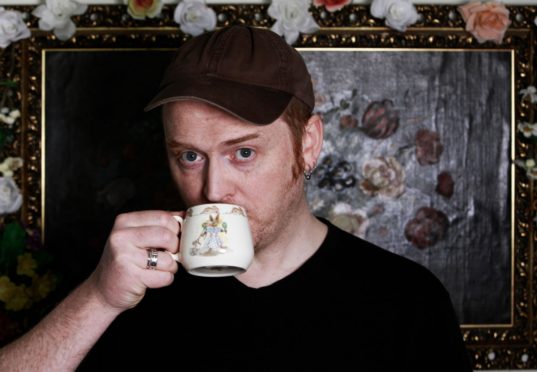Fife folk musician and singer-songwriter James Yorkston sparked a lively Twitter exchange last week over a little-known Spotify app feature.
James, 50, whose latest album The Wide, Wide River was released earlier this year, tweeted last Monday: “I’m not a massive fan of Spotify, but since they’ve added that magic button where people can tip the musicians, I’ve seen a small stream of cash coming in. It’s most heartening.”
It was a seemingly-innocuous Tweet, but it has caused quite the stir. In just four days, it garnered more than 3,000 likes – and the comments show the “magic button” isn’t the only one being pushed.
With responses ranging from excited proposals of “virtual busking” to some branding the button “a poor substitute for paying artists fairly in the first place”, it seems James has set the table for a good old-fashioned digital debate.
I'm not a massive fan of Spotify, but since they've added that magic button where people can tip the musicians, I've seen a small stream of cash coming in. It's most heartening. My phone goes ping and someone has tipped me £20 or £2 or whatever, simply because they like the music
— James Yorkston (@jamesyorkston) March 29, 2021
Spotify’s ‘magic button’ – what is it?
The “magic button” to which James refers is Spotify’s Artist Fundraising Pick feature. It was was launched on April 22 2020, in response to the pandemic’s devastating impact on the music industry.
According to audio streaming giant Spotify, it “enables artists who are interested in raising money to support themselves, their bands, or their crews, to get the word out to their fans on their Spotify artist profiles”.
The feature can be set up by artists, and works with payment platforms Paypal, CashApp and GoFundMe. It then appears on the artist’s profile as a sort of virtual tip-jar. (The button can also be used to fundraise for other initiatives, such as charities.)
Replies to James’ tweet have praised the impact this could have for smaller artists. One Twitter user even deemed the feature “a game changer for the underground bands”.
As for James, he was “amazed” Spotify brought out the button, “especially as they don’t take a cut”. He quips: “It seemed almost human of them.”
Jokes aside, he explains: “It means that if someone is enjoying an album, or a song, they can very simply put some cash into the pocket of the artist.”
For me, knowing that someone is listening and thinking highly enough of the music to tip some cash is probably worth more than the money itself.”
James Yorkston
However, he stresses that the money from the button is more of a token than a source of income.
He says: Obviously, the cash is handy. My son split his welly boots a few days ago, then a minute or so later my phone pinged. Someone had tipped me enough cash to pay for a new pair. Purely coincidental, but appreciated.
“But for me, knowing that someone is listening and thinking highly enough of the music to tip some cash is probably worth more than the money itself.”
Band-aid for a bigger issue?
But it’s not all Brownie points for the world’s most popular streaming platform.
By far the most common complaint in tweet’s responses was that this “magic button” wouldn’t be necessary if artists were paid fairly for their work by streaming platforms.
Of course, if Spotify paid musicians a reasonable rate, that would be preferable to the tipping, but they don’t.
James Yorkston
One Twitter user commented: “My issue is a bit like tipping Uber drivers, though, or much of the restaurant industry. Shouldn’t they be getting paid a decent rate in the first place?”
“It’s the way of the world, isn’t it?” James observes.
“Think of that old fellow (Captain Tom Moore) who raised £100 million for the NHS. In an ideal world, he wouldn’t have needed to, would he?
“Of course, if Spotify paid musicians a reasonable rate, that would be preferable to the tipping, but they don’t.
“Spotify, YouTube, all those streaming sites generate huge amounts of money. But the money flows up, not down, as ever.”
He goes on: “The ideal would be if the streaming services realised they’d made enough money now and it was time to change the percentage to the musician’s favour, so we got paid fairly for our music, our work.
“But, that won’t happen.”
Asked why not, James says simply: “Corporations are too greedy, on the whole, in every area of business. And music is, of course, a business.”


